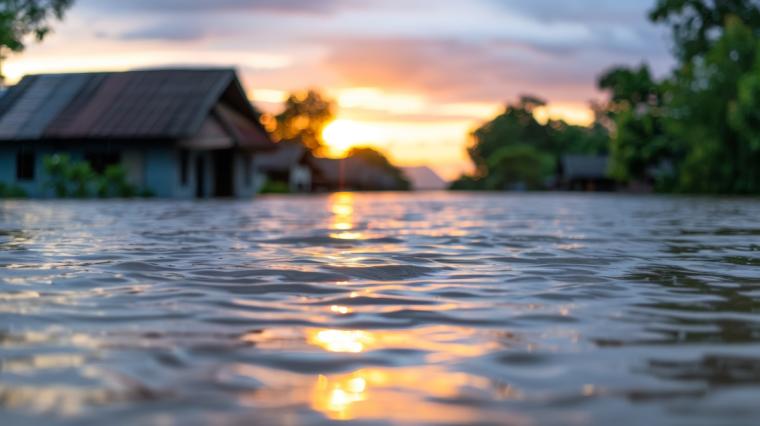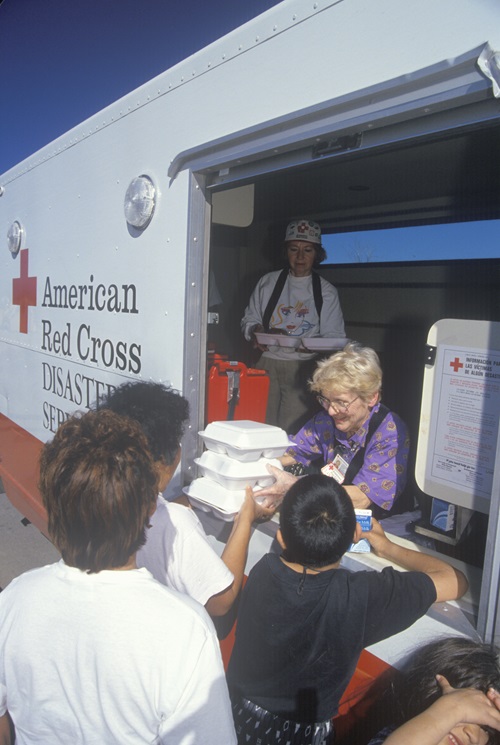
Photo © Dmitry Buksha | Dreamstime.com
Some areas of Florida were still staggering to their feet after Hurricane Helene when Milton slammed into the state, causing widespread destruction, along with power outages and deaths. Sports facilities certainly were not immune to damages; many are proceeding with tournaments, while others were so badly damaged that they will require rebuilding. Tropicana Field, one of the highest-profile casualties of the storm, had been used as a base for first responders.
The storm, which also spawned tornadoes, was one of the largest faced by Florida in decades. Now, the cleanup has begun – in many areas, again. Here’s how to help those who are stranded in shelters or in damaged homes:
The American Red Cross is on the ground in Florida and is requesting financial donations here to help people affected by Hurricanes Milton and Helene. It is also possible to text the word HURRICANES to 90999 to make a donation.
Also of note: The cancellation of blood drives across the Southeast caused thousands of blood donations to go uncollected. Hurricane Milton has the potential to further deplete the blood supply. Those outside the affected areas are encouraged to schedule a blood donation appointment here.
CBS News has stated that Feeding Tampa Bay connects residents with hot meals and food banks. Their disaster readiness team is FEMA-trained, the organization said, and works directly with local emergency management operations to provide food, water and hygiene items during crisis situations.
The American Association of Retired Persons (AARP) notes, “Millions of people across the Southeast — especially vulnerable older adults — will face enormous challenges in the coming weeks and months as they rebuild and recover from the damage caused by Hurricane Helene and Hurricane Milton.” AARP Foundation has created a relief fund to support the victims. has developed a matching-funds campaign to help hurricane victims; information is here.

USA TODAY also provided the following list of organizations that are accepting donations and providing aid:
- Baby2Baby: Sends supplies for children and families.
- The Humane Society of the United States Emergency Animal Relief Fund: Helps animals impacted by disasters.
- World Central Kitchen: Prepares food and fresh water.
- Save the Children: Helps children and schools.
- American Red Cross: Delivers aid in a number of ways, including mental health services.
- Direct Relief: Provides medical resources.
- Aerial Relief: Conducting water rescues, welfare checks and more aid.
Note Regarding Material Donations (Goods and Services): While many wish to directly donate clothing, cans of food, business services and more, disaster relief workers say those efforts are not what is needed at this time. In fact, with flights limited to impacted areas and many roads unpassable, there is no way to ship material donations.
This article about items good-intentioned people donated unnecessarily (stuffed animals, half-used items from medicine cabinets, dilapidated shoes and even formal clothing) reinforces this message.
One excerpt: When drivers couldn't find willing recipients for truckloads of clothing sent to affected communities after Hurricane Andrew in 1992, they "unloaded them on the side of the road," a disaster worker said. "The heat and usual afternoon summer rains quickly turned the piles into heaps of stinking, rotting cloth."
Instead, experts say, people should give money to groups they trust, which have the ability to provide the aid that is needed, where it's needed most.
Support Honest Charities: Unfortunately, caution is needed when donating to storm-related charities. So-called storm chasers looking to capitalize on the disaster may launch crowdfunding appeals or may even go door to door. The following resources are available:
- Those who see a suspicious campaign can now report it to the BBB Scam Tracker.
- Federal Emergency Management Association (FEMA) has a Disaster Investigations and Inspections Division, with contact information here.
- The U.S. Cyber & Infrastructure Security Agency also has resources related to phishing emails and other electronic communications.
Additionally, the State’s Attorney’s Office in impacted areas are good resources.

